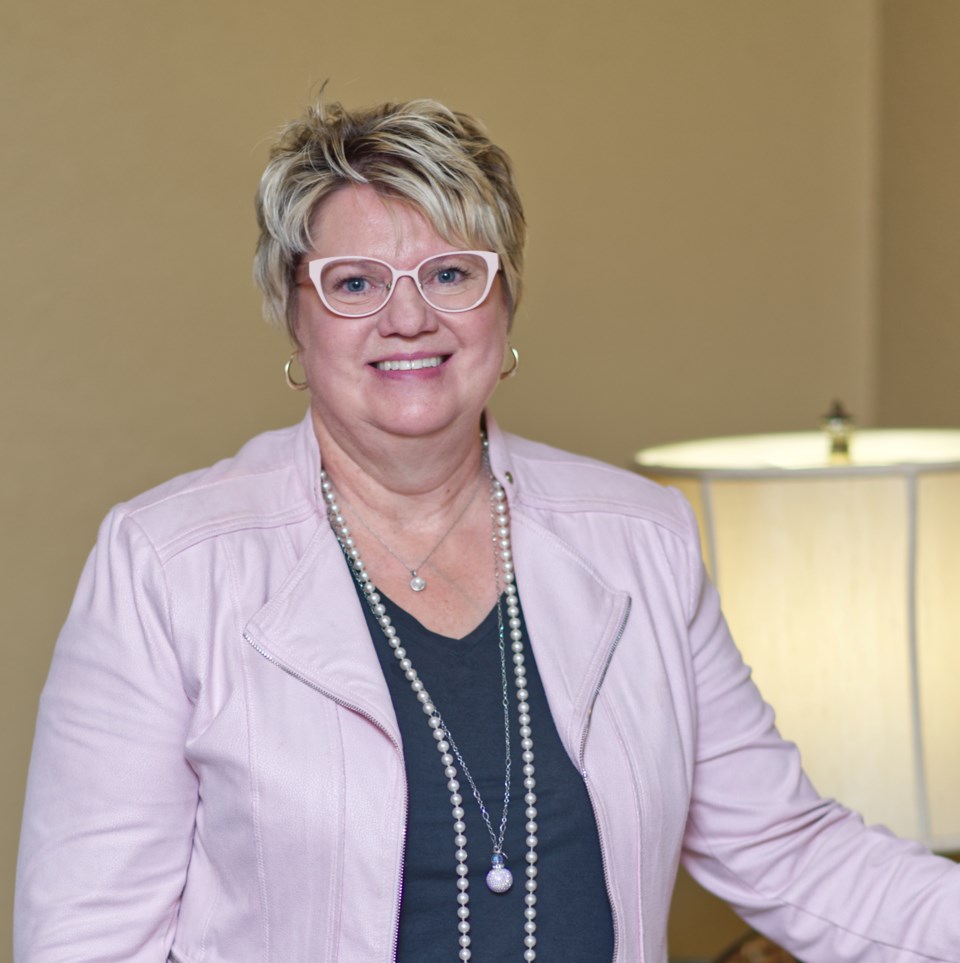ASSINIBOIA - “My families lead me to the dance and teach me things so many times,” said Elan Grondin, owner and funeral director at Piché-Hawkins-Grondin Funeral Chapels. This humble, empathetic sentiment seems to be the standard by which Grondin approaches her career. Grondin and her husband Patrick purchased the funeral homes based in Assiniboia and Gravelbourg in 2007 - a big move for the couple originally from the Biggar area.
“When we came, it was very much like what Pat had been running in Biggar with his family,” Grondin said of the funeral homes, purchased from Sam Hawkins and Claude Piché. “We took a leap of faith, and they [Hawkins and Piché] sold us the businesses.”
She explained that the idea to purchase the funeral homes came during a hockey game in Gravelbourg, where the couple struck up a conversation with Hawkins. He said himself and Piché were considering selling the business, but preferred it going to a family. Perhaps serendipity came into play with the big move for the Grondins, as everything just seemed to come together beautifully.
“Claude and Sam have been wonderful,” Grondin said of the transition. “We were meant to be here - it just felt good.”
It was also a time where Grondin decided to streamline her working world. She taught Grades 1-9, spending the majority of her career with the Grade 6 level. However, balancing teaching, the funeral homes and raising a family was a tall order to manage - something had to give.
“I knew that to make the business work, that I would transition into funeral work full time,” Grondin said. She had gained her funeral director’s license back in 2002, and has been constantly learning new ways to best serve the families they encounter.
“We’re always evolving and changing,” Grondin explained. “To be stagnant would hard for me. How can we do better; how can we serve people better?”
Carrying on this family tradition, the Grondin’s son, Patrick Jr., also received his funeral director’s license and has joined the staff.
With an office both in Gravelbourg and Assiniboia, the drive would seem daunting, but Grondin uses that time to her advantage. She finds the time on the road allows for contemplative thought and is quite enjoyable.
Indeed, this career involves many unique skill sets. Primarily, empathy and compassion for those families experiencing the death of a loved one, but also strategic planning skills in order to make certain moving parts work behind the scenes. “Every family is unique and special in their ways,” Grondin said, elaborating how families become so connected during times of grief. “Once I meet a new family and they come into my world, they are my family.”
Added to these delicate situations were gathering restrictions during the pandemic, which created different barriers for everyone.
“It was very difficult for families who lost loved ones during the restriction times,” Grondin said. “It was definitely hard for us to have people that we were limited in numbers, space or ceremony-wise.”
It also meant families weren’t able to achieve closure in a timely manner.
“We don’t even know what’s happening inside us when we do delay,” Grondin explained. “The funeral is not really a time to say goodbye. I find it more of a pathway to say hello to the pathway to goodbye.”
But some positives did rise from this shift, foremost being the ability to livestream a service - something which Grondin believes will remain as the world emerges from the pandemic.
Grondin stressed the importance of a funeral in terms of how it brings family and friends together; strengthening connection.
“One thing that the funeral does is bring us into a support system and allows us to come forward, to release some of our emotions and bring us to that pathway that we can come, let those feelings out,” she said. “We think we’re prepared, and maybe we’re not prepared, depending on the circumstances. But the funeral opens us up to that window of allowing us to mourn.”


(1).png;w=80;h=120;mode=crop)

